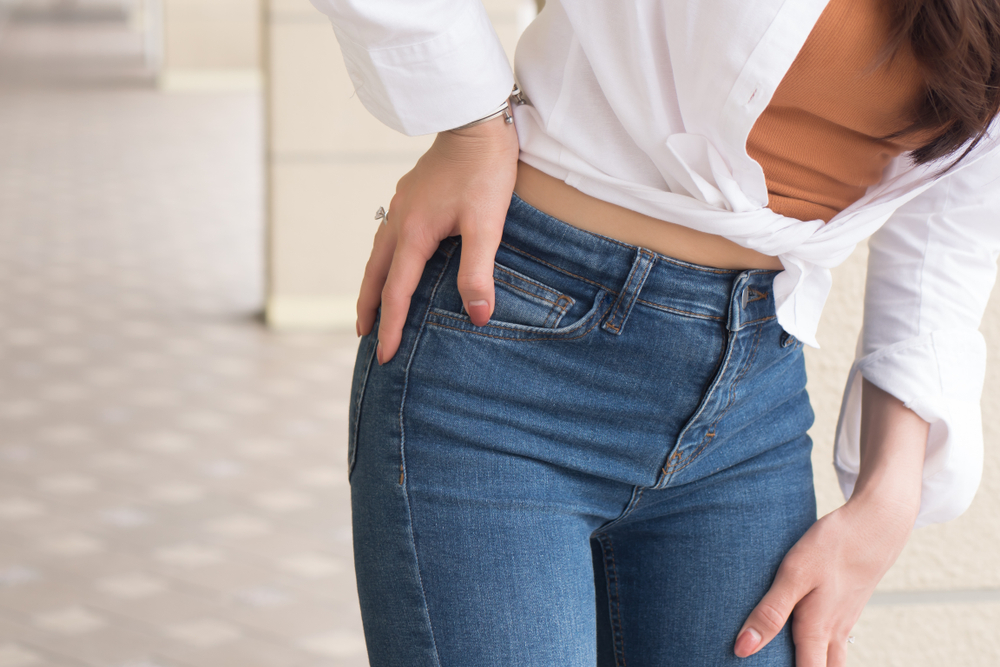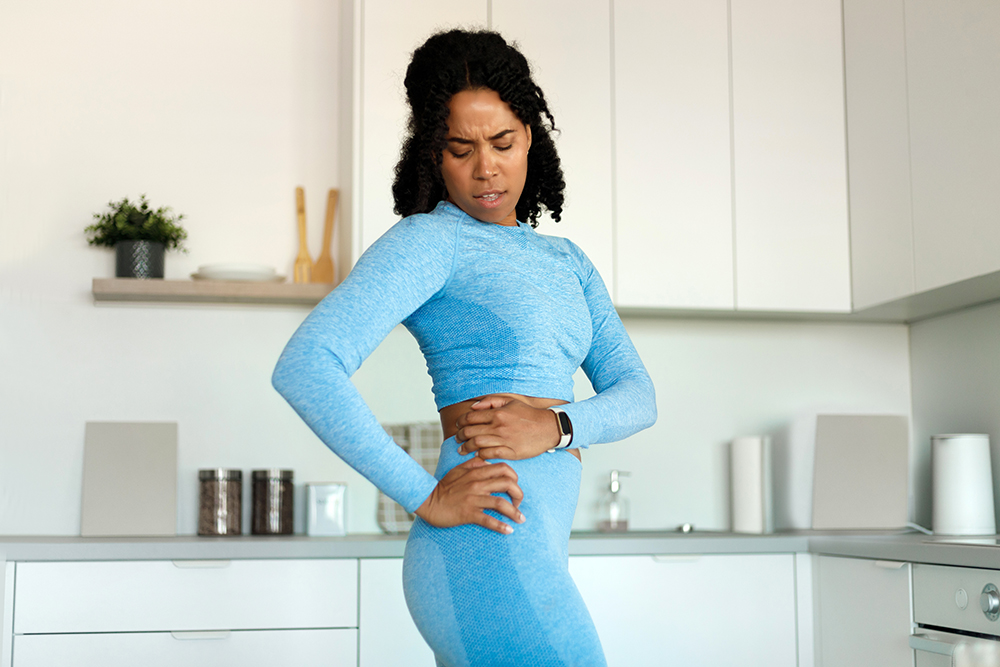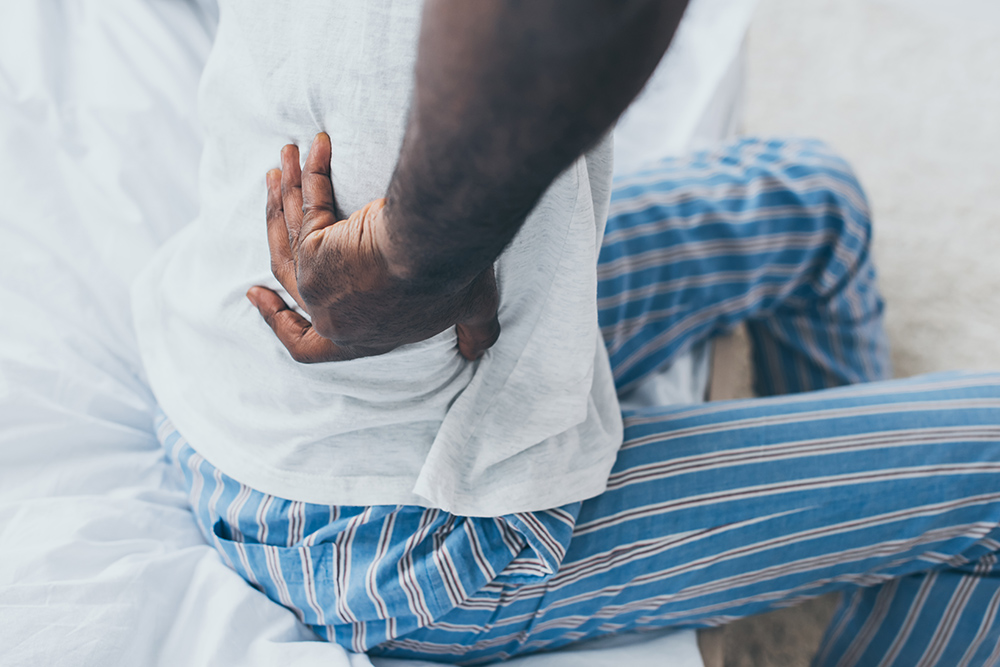Contents
There’s nothing worse than trying to settle down for a good night’s rest, only to be kept awake by pain in your body. Hip pain is a common condition for many people, and it can affect your sleep, too. In one study, patients with hip pain slept on average an hour less than the pain-free patients.
Don’t let hip pain disrupt your night anymore. Let’s take a look at what might be causing your hip pain and how physical therapy can help you address it.
Causes of hip pain at night
There are many different causes of hip pain at night, and each one requires a unique solution. Here are a few of some of the most common causes of nighttime hip pain and what you can do to resolve them.
- Sleep position — While it may not seem like a big deal, your sleep position matters. Many people prefer sleeping on their side instead of on their back. However, side sleeping can be a major cause of hip pain at night. When you sleep on your side, you’re lying directly on your hip joint, which puts pressure on your hip. Your other hip can also become strained because the top hip joint is forced to shift forward. Sleeping on your back or with a pillow between your hips can help decrease your hip pain.
- A bad mattress — While your mattress may look fine, it will wear out eventually. Over time, wear and tear can lead to the mattress sagging. This means you get less support for your hip joints, resulting in more pressure on them. This is especially true if you’re a side sleeper. If your last mattress purchase was more than five years ago, you may need to consider getting a new one. Research the kind of mattress you have to see how long it’s supposed to last and whether you might need a new one.
- Pregnancy — If you’re pregnant, as your belly bump grows, the weight and size of the baby puts extra pressure on your spine and hips. This can lead to pain and discomfort during the night. Hip pain can also be caused by your ligaments and muscles loosening up in preparation for childbirth. Additionally, as you near the end of your pregnancy, you may not be able to sleep on your back, which can also increase hip pain. Consider buying a pregnancy pillow to support your hips and belly bump through your pregnancy.
- Bursitis — Small, fluid-filled sacs in the hips joints called bursae act as cushions to help your joints run smoothly. But overusing your hip joint due to sports or other physical activity can cause those sacs to become inflamed. That inflammation is what’s called bursitis. With bursitis, you may experience pain that worsens after sitting or lying down for long periods of time. Physical activity can also make this pain worse. Rest and medical treatment can calm the inflammation in your hip joints after a few days or weeks.
- Arthritis — There are several types of arthritis that can affect the hip joints, such as osteoarthritis, psoriatic arthritis and rheumatoid arthritis. Some forms of arthritis cause the cartilage in the hips joint to wear out over time, while others are due to an autoimmune condition that attacks the hip joints specifically. All forms of arthritis can cause pain in the hip area, clicking or grinding when you move your hip, and pain that disturbs your sleep. Rest and medical treatment are the best course of action for all forms of arthritis.
- Injury — Overuse of the hips joints during strenuous exercise can cause injuries and hip pain. These injuries can cause damage to the tissue in and around the hip joint, making it hard to move or even sleep without pain. If the injury is severe, you may even be dealing with a fracture or a broken bone. Depending on the injury, the treatment needed will vary.
No matter what’s causing your hip pain, there are solutions. While at-home treatments such as rest, stretches and over-the-counter pain medication may help with minor pain, if your hip pain persists, you may need to seek professional treatment.
Physical therapy treatments for hip pain at night
Physical therapy offers different ways to address your hip pain. Your physical therapist will show you how to properly stretch and exercise your hips with the goal of strengthening your muscles and decreasing pain. Here are two techniques your physical therapist may use to help you address your pain:
- Manual therapy — For general hip pain, manual therapy is one of the main methods of physical therapy. Your physical therapist will use hands-on techniques to help stretch and strengthen different areas of your hips, legs and back to relieve pain. The goal of manual therapy is to increase mobility and movement in the hip joints, which can decrease the pain you experience at night. Some physical therapists have a Certification in Orthopedic Manual Physical Therapy (COMT). This is a postgraduate speciality program that focuses on manual therapy techniques. At Lattimore PT, we have 30 fully certified COMTs who can use specialized manual therapy techniques to help you address your hip pain.
- Spinal decompression — If your hip issues are also causing spine issues, spinal decompression may be able to help. Spinal decompression is a type of traction therapy that works to gently stretch and reposition the spine using a manual lumbar traction table. The goal with this treatment is to stretch your back and reposition your spine to help alleviate future pain.
No matter what kind of pain you’re dealing with, Lattimore Physical Therapy is here to help. Don’t suffer needlessly through sleepless nights because of hip pain. If you’re ready to take the first step toward healing, contact our team today for more information or to schedule an initial appointment.



